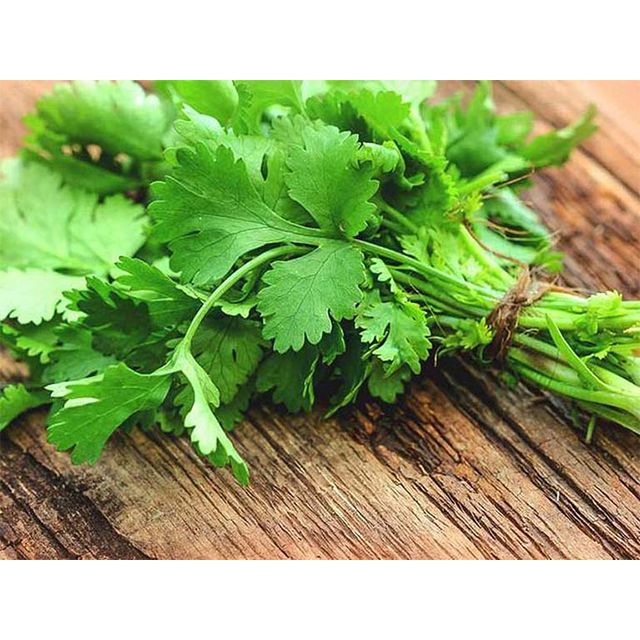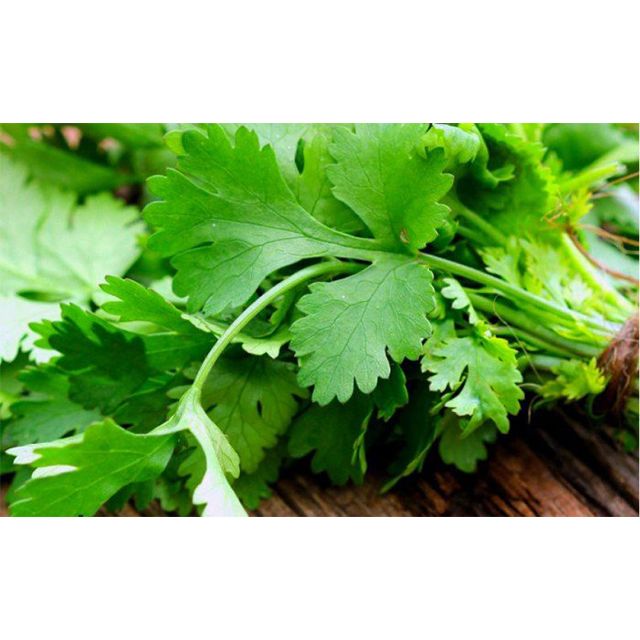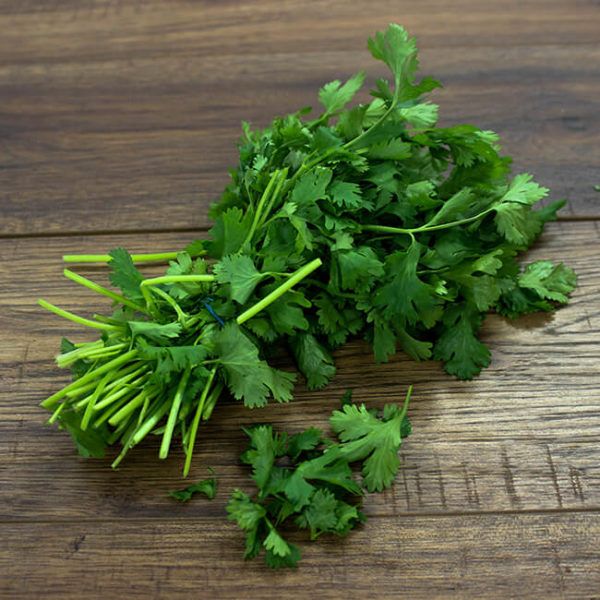CORIANDER
Coriander, also known as Cilantro, or “Mùi ta” in Vietnamese, is an annual herb that belongs to the Apiaceae family, originating from a wide area between Western Asia and Southern Europe. The leaves are variable in shape, slender, and widely lobed at the base of the stem, while the leaves on the flowering stem are higher and feathery. Coriander is said to have a warm, spicy and nutty aroma, with a hint of citrus.
All parts of the plant are edible, but the fresh leaves and the dried seeds are the parts most traditionally used in cooking. The taste of Coriander has citrus undertones, refreshing and slightly tart
 Passport
Passport
 How to eat
How to eat
A common condiment in many cuisines, coriander leaves are best as garnish or decoration for dishes such as soup, salad, or noodles. Its refreshing flavor will enhance the dish’s deliciousness... Coriander can also be an ingredient to make a paste for burritos, salsa, or marinades.
 Health benefit
Health benefit
Coriander contains decals. Coriander seeds contain 0.2% essential oil with a mild, slightly orange aroma, the main ingredient being d-linalool (60-70%) with a little geraniol and L-borneol and about 20% of the carbides: a-pinene, terpinene, traces of b-pinene, b-phellandrene, camphene. In fresh coriander, the essential oil content is 0.12% at the time of flowering.
Coriander is rich in vitamins A and C. These vitamins work to support and promote a healthy immune system. In addition, coriander seed extract also contains antioxidants that reduce inflammation and slow the growth of cancer cells such as breast cancer, lung cancer...One study found that coriander may reduce risk factors for cardiovascular disease. The addition of coriander every morning day will provide oleic acid, ascorbic acid, and linoleic acid, these substances help regulate cholesterol levels to the lowest level to help prevent diseases such as atherosclerosis and vascular occlusion. blood.
Moreover, the folate found in coriander reduces the number of harmful enzymes in the body, thereby preventing heart attacks and strokes. Coriander juice also helps diuretics, lower blood pressure.
 Export Overview
Export Overview
At the present, coriander has become an export commodity that brings in considerable economic value. The plant has been exported to the EU, Korea, Japan,...
 What’s FOSACHA
What’s FOSACHA
Coriander is one of FOSACHA’s main exported agricultural products. FOSACHA works closely with our farms throughout the production process, from planting, harvesting to sorting, grading the top quality of lychee for any potential importers from international markets. Inheriting perennial farming experience, combined with modern planting techniques, adhering to VietGAP and GlobalGAP standards, our coriander still retains its traditional flavor while ensuring quality standards for food safety.
Moreover, FOSACHA provides a solution to all the challenges of establishing a traceability system with unlimited information. The information that has been updated on the system cannot be changed, suitable for product traceability. Thereby the importers will not worry about the product’s origin.
If you are looking for a reputable supplier to import high-quality, VietGAP, GlobalGAP compliant Vietnamese Coriander, as well as establish a long-term, mutually beneficial partnership, please contact us for further discussion.
 Storage advice
Storage advice
Stored stored in a cool, dry place at 7 to 10 °C and at a relative humidity (RH) of 85 to 90%
 Availability
Availability












